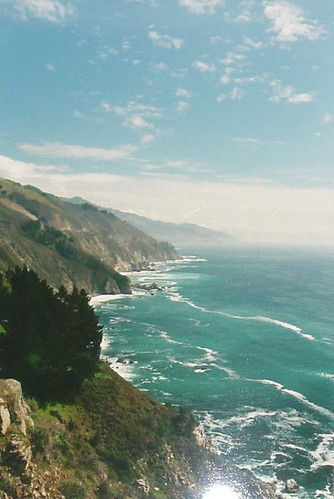Six years ago today (give or take), I had a difficult decision to make. I had identified
Annie Lang (Indiana U.) and
Mike Shapiro (Cornell U.) as the mentors with whom I wanted to work for my Ph.D.
Both places accepted me with funding. What to do? I could not be two places at once.
Initially, I chose
Cornell. In many ways, it was a great decision. Dr. Shapiro is a great mentor, and I loved working with him.
I made the decision, in part, because of a paper Mike had written during the 2000-01 academic year. The paper involved perceived reality. That is, how do you know whether something you have never experienced is realistic?
Without going too deep here, this is of interest to media scholars since almost everything on television is somewhat unlike real life. If television were not bigger, brighter, and louder, why not just turn off the TV and live your life?
My work with Dr. Shapiro resulted in one journal publication (
read the PDF here), and I still call upon him for advice to this day. However, while at Cornell I realized that I really did need to learn psychophysiological measurement to answer my research questions.
Annie Lang pulled off a miracle and rescued my chancellor's fellowship, and I was on my way to the Hoosier state. She taught, and I learned. And I consider myself very lucky to have worked with both of these great scholars.
Fast forward to 2007, and
my lab is running a study that owes its roots to these two thinkers. We are collecting psychophysiological responses to perceived reality scenarios.
The paradigm is basically this (and owes directly to Dr. Shapiro and colleagues): we establish a scenario that might occur on television. For example, we tell people to consider "A family is at home when an earthquake hits."
Then, given that scenario, we ask people to rate how realistic different events are. So we might say, "family waits for earthquake to end." When we have asked people across the country, they say that this is quite likely to happen.
We might also ask them to decide the reality of something very atypical. So we might say, "family stands by glass window." Again, when we ask people across the country, they say this is highly
unlikely.
I am developing a neural network-based theory of how events are stored in the brain and how we decide what is real. The current study is the next logical step.
In brief, we are looking at heart rate in terms of cognitive load. In a safe, controlled environment, we know that the heart decelerates (or stays decelerated) when attentional resources are being allocated.
It was my hypothesis that atypical events would require more cognitive load.
This experiment attempts to control almost everything. So the events are presented via audio (to control for reading speed) while participants watch a black screen. For a variety of psychological stimuli, physiological data have been collected for 6 seconds. So I wanted to record data for exactly 6 seconds after the end of the audio event.
It was impossible to have all of the event audio files take the same length, so we record for 11 seconds. In each case, the sound file begins somewhere after the first second and ends at
exactly 5 seconds into the recording.

In each case, the screen went black at the beginning of the trial. This leads to an orienting reflex, marked by cardiac deceleration. What is interesting is that the cardiac decelerations persists for atypical events (white circles). However, the heart rate is higher for typical events (black circles).
This suggests that the brain is indeed having to work harder to process these atypical events.
Too cool. It makes for a great start to spring break. Actually, the stomach flu started spring break, but this is a nice recovery.
For some reason, the Y-axis labels disappeared when I exported this graph. These heart rates range from 78 bpm at the top to 74.5 bpm at the bottom.Labels: heart rate, perceived reality, psychophysiology


















 FOLLOW SAM ON TWITTER
FOLLOW SAM ON TWITTER
 SUBSCRIBE TO THIS FEED
SUBSCRIBE TO THIS FEED
